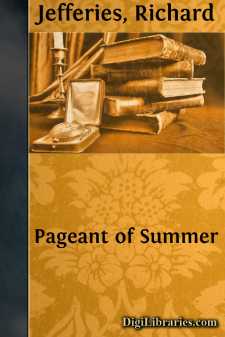Categories
- Antiques & Collectibles 13
- Architecture 36
- Art 48
- Bibles 22
- Biography & Autobiography 813
- Body, Mind & Spirit 142
- Business & Economics 28
- Children's Books 15
- Children's Fiction 12
- Computers 4
- Cooking 94
- Crafts & Hobbies 4
- Drama 346
- Education 46
- Family & Relationships 57
- Fiction 11828
- Games 19
- Gardening 17
- Health & Fitness 34
- History 1377
- House & Home 1
- Humor 147
- Juvenile Fiction 1873
- Juvenile Nonfiction 202
- Language Arts & Disciplines 88
- Law 16
- Literary Collections 686
- Literary Criticism 179
- Mathematics 13
- Medical 41
- Music 40
- Nature 179
- Non-Classifiable 1768
- Performing Arts 7
- Periodicals 1453
- Philosophy 64
- Photography 2
- Poetry 896
- Political Science 203
- Psychology 42
- Reference 154
- Religion 513
- Science 126
- Self-Help 84
- Social Science 81
- Sports & Recreation 34
- Study Aids 3
- Technology & Engineering 59
- Transportation 23
- Travel 463
- True Crime 29
Hodge and His Masters
Description:
Excerpt
CHAPTER IX
A pair of well-matched bays in silver-plated harness, and driven by a coachman in livery, turn an easy curve round a corner of the narrow country road, forcing you to step on the sward by the crimson-leaved bramble bushes, and sprinkling the dust over the previously glossy surface of the newly fallen horse chestnuts. Two ladies, elegantly dressed, lounge in the carriage with that graceful idleness—that indifferent indolence—only to be acquired in an atmosphere of luxury. Before they pass out of sight round another turn of the road it is possible to observe that one at least possesses hair of the fashionable hue, and a complexion delicately brilliant—whether wholly natural or partly aided by art. The other must be pronounced a shade less rich in the colours of youth, but is perhaps even more expensively dressed. An experienced observer would at once put them down as mother and daughter, as, indeed, they are.
The polished spokes of the wheels glitter in the sun, the hoofs of the high-stepping pair beat the firm road in regular cadence, and smoothly the carriage rolls on till the brown beech at the corner hides it. But a sense of wealth, of social station, and refinement—strange and in strong contrast to the rustic scene—lingers behind, like a faint odour of perfume. There are the slow teams pulling stolidly at the ploughs—they were stopped, of course, for the carters to stare at the equipage; there are the wheat ricks; yonder a lone farmstead, and black cattle grazing in the pasture. Surely the costly bays, whose hoofs may even now be heard, must belong to the lordly owner of these broad acres—this undulating landscape of grass and stubble, which is not beautiful but evidently fertile!
A very brief inquiry at the adjacent market town disposes of this natural conclusion. It is the carriage of a tenant farmer—but what a tenant! The shopkeepers here are eloquent, positively gratefully eloquent, in the praise of his wife and daughter. Customers!—no such customers had been known in the old borough from time immemorial. The tradesman as he speaks involuntarily pulls out his till, glances in, and shuts it up with a satisfied bang. The old style of farmer, solid and substantial enough, fumbling at the bottom of his canvas bag for silver and gold, was a crusty curmudgeon where silk and satin, kid gloves, and so forth were concerned. His wife had to look sharp after her poultry, geese and turkeys, and such similar perquisites, in order to indulge in any innocent vanity, notwithstanding that the rent was paid and a heavy balance at the bank.
Then he would have such a length of credit—a year at least—and nowadays a shopkeeper, though sure of his money, cannot wait long for it. But to ask for the account was to give mortal offence. The bill would be paid with the remark, intended to be intensely sarcastic, 'Suppose you thought we was a-going to run away—eh?' and the door would never again be darkened by those antique breeches and gaiters....












